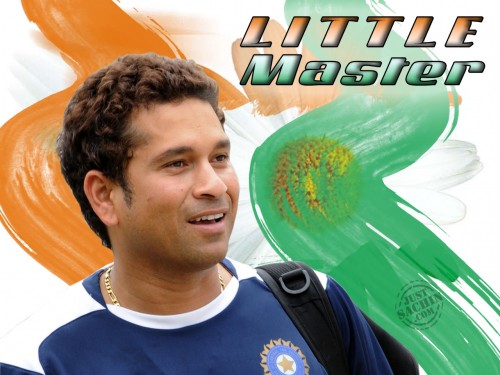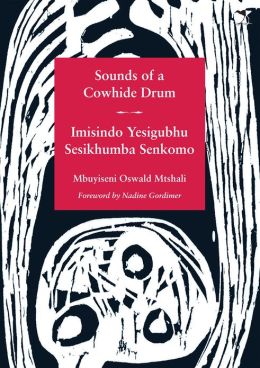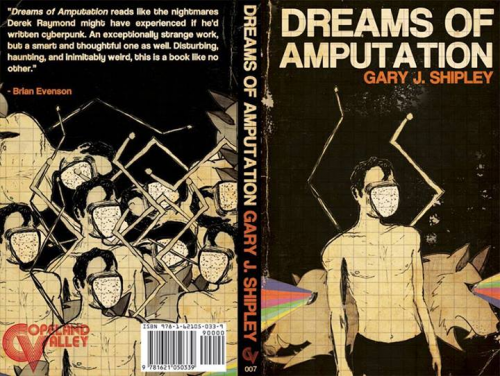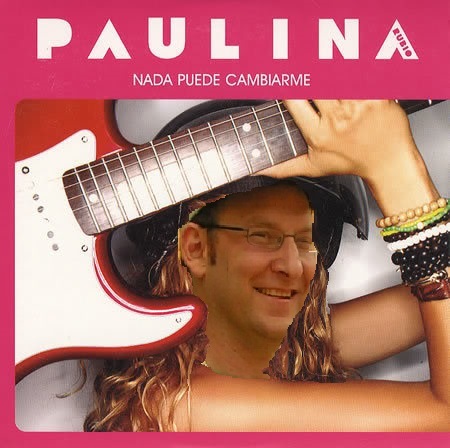Steve Roggenbuck is “launching a group project called Boost House” and needs “funding to get it started”
what in the frick is Boost House?
Boost House will be a publisher, and an actual house out of which that publisher is run.
we’ll make books, posters, shirts, stickers, and other goods that promote ways of living we believe in.
get all the information here at Kickstarter
………Alt Lit set for Huge International BOOST……..
1) When Sachin Tendulkar, famous cricketer, walked back off the Wankhede field in Mumbai after having accumulated nearly 16,000 Test Runs in exactly 24 years at the highest international level (a career surpassed in excellence only, perhaps, by Sir Donald Bradman) he proclaimed “I am ready to die a violent death.”
Yes, it seems the world’s most famous cricketer (a virtual God in India and the rest of the subcontinent) is headed for new glories, laurels and great, foaming spikes of URL fame in the crazy, wide-open world of Alt Lit.
2) “Yes,” Sachin continued, “I plan on running amuck in the woods muttering glorious Carpe Diem extravagances”— whereupon Steve Roggenbuck leaped out of the Wankhede stands and hoisted Sachin up on to his shoulders and started chanting “Boost! Boost! Boost!” and the whole crowd, 40,000 strong, joined in immediately, voraciously chanting “Boost, Sachin, Boost” and Eternal Lief seemed all-too possible. Beautiful. Exquisite. Here. Now. Now.
3) “Will you be going to Brooklyn?” READ MORE >
<3 Love & Lovers <3
Whoa, hi, I’m still reeling from this reading I went to on Friday night, which was all about Perfect Lovers Press, which is run out of Cincinnati, which (PLP + Cinci) is run by Dana Ward and Paul Coors. It was held at The Poetry Project and it was something that went really, really late into the night and it was something that was just about perfect–with amazing readings from amazing people like Yvette Nepper (who just ruined everyone so here’s her chapbook) and Sue Landers (who has a chapbook called What I Was Tweeting While You Were on Facebook, but I can’t find a link so yeah holler @ Dana & Paul) and Micah Freeman (who said “Hi” to everyone and read these amazing poems that are kind of about Amy Winehouse but also not really, it’s all about our peaks and valleys, the whole thing) and John Coletti (who just wow) and other people and especially Leopoldine Core, who I have really, really liked for a really, really long time so I took some video:
and I just thought everything she read was so full and so rough, especially when she’s all:
of how easy it is
to know me
i’m so familiar
naked all the time
my same legs
my ass
i am such a weird little girl
for wanting to live in your
light
picketing in the heat
like an ant
and I don’t know what else to say, besides energy, man–it’s kind of everywhere.
Sounds of a Cowhide Drum // An Interview with Mbuyiseni Oswald Mtshali
***
Look upon me as a pullet crawling
from an eggshell
laid by a Zulu hen,
ready to fly in spirit
to all lands on earth.
A few months ago I posted up some thoughts on Mbuyiseni Oswald Mtshali’s wonderful book “Sounds of a Cowhide Drum” in which I indicated an interview with Mr. Mtshali would be forthcoming. And, well, it took a while longer than I’d wished but here it is:
***
Rauan: When we chatted you mentioned that the first poems you wrote were love poems, that you were writing to “impress girls”—-and besides the dark and serious subjects and moods of Sounds of a Cowhide Drum there is also a joie de vivre to it, a real sensuality.
I want to be adorned
by the silken suit so scintillating in sheen;
it pales even the peacock’s plumage,
and catches the enchanted eye
of a harlot hiding in the alley:
“Come my moulten bird,
I will not charge you a price!”(from “The moulting country bird”)
And, so, can you talk a bit about the poet as peacock? as shiny bird?
Oswald: A peacock is considered to be the proudest and most colorful bird in the animal kingdom. In the poem “The moulting country bird” the bird symbolizes a transformation of a country boy from the village of KwaBhanya on banks of Blood River in Northern KwaZulu to the bright neon lights of Johannesburg, the Golden City. The bumpkin sheds his garish and comical garments of country life and assumes the mantle of sophistication and “civilization” in a cosmopolitan metropolis of EGoli.
Once he has embraced the city slickers’ fashionable attire he goes back during his village to show off and strut his stuff like a peacock to the envy of his coevals and contemporaries who are still clad in their shabby garments of most clodhoppers in the country. His mannerisms and speech patterns are dramatically changed and he follows the trends of city life and discards all those things that define and remind him of his “backward” people, especially those of his same age group. The whole process is marked by migration from rural areas and transformation by life in the urban areas where he falls under the spell of many influences. His experiences and interactions with a polyphonic of cultures and Babel of languages READ MORE >
Dreams of Amputation
Gary J. Shipley’s “Dreams of Amputation” is now available.
Here are a couple of excerpts:
The station is full of copies, thought-structures all breathing the same boxed air as him, screwed down into new estates, their borrowed movements vapour trails of the imperceptible multitudes that precede them, his forced embodiment a shriek he cannot hear, its explicit exclusion of human context conveyed in a series of smirks and titters causing him to wake repeatedly inside glimpses of himself, a reluctant conduit to spasms outside the insulation of a body, some dead agent without a face and him mad yellow escaping his dismembered endurance, expanding into nothing in the artificial disfigurement of their smiles until he finds an unsecured staircase, and unaware of any alien intent they carry it up after him, hands formed like mouths barking, their dreams of souls all shrunken cages in its swarm of dead beginnings, their every defect growing into holes, and up into the street and they disperse around him their brains once again made of the digitalised ooze of money and fucking and blood, his own voice coming back removed as if from a TV in another room, his limbs appendixes to an earthquake camouflaged by some Sadean baptism of puke and shit, and nothing and no sound, its hold fixed on the ends of unpronounced words, agitating images of string, an animated ossuary squeezed with rainless faces shining like simulated sick…
and
For a second or two there is the man, on his feet reaching for the back of his chair with his right hand, and then the dance of the vanishing begins: the flailing honeycombed limbs, naked bone READ MORE >
Over at a mock Poetry Foundation Jim Behrle’s chimed in about the Kill List: his being upset about it, among other things, as well as his attempts to contact the publisher(s) to see if they’d “comment on any efforts they made to fact check the poem?”
I mean, really? Really? And I’m with Mark Johnson 1000 literal (ha ha) % when he says that Behrle’s piece is “so embarrassing.”
And how embarrassing, also, the way in which so many others have reacted to this Kill List. And how embarrassing, also, that CAConrad’s heaped abuse on Mark for speaking up in the poem’s defense, comparing (after other insults) Mark’s “stupidity” to the “plaque on very filthy teeth.”
And how embarrassing (but not surprising) that Conrad’s little drones let him get away with shit like this.
This Kill List’s turned out to be a great litmus test, indeed. Blah, blah.
John Cheever fiction published in The New Yorker
“Buffalo” – June 22, 1935 (pp. 66-68)
“Play A March” – June 20, 1936 (pp. 20-21)
“A Picture for the Home” – Nov. 28, 1936 (pp. 80-83)
“In the Beginning” – Nov. 6, 1937 (pp. 77-80)
“Treat” – Jan. 21, 1939 (pp. 50-51)
“The Happiest Days” – Nov. 4, 1939 (pp. 15-16)
“It’s Hot in Egypt” – Jan. 6, 1940 (pp. 20-21)
“North of Portland” – Feb. 24, 1940 (pp. 20-21)
“Survivor” – Mar. 9, 1940 (pp. 54-56)
“Washington Boarding House” – Mar. 23, 1940 (pp. 23-24)
“Riding Stable” – Apr. 27, 1940 (pp. 20-21)
“Happy Birthday, Enid” – July 13, 1940 (pp. 15-16)
“Tomorrow Is a Beautiful Day” – Aug. 3, 1940 (pp. 15-16)
“Summer Theatre” – Aug. 24, 1940 (pp. 45-48)
“The New World” – Nov. 9, 1940 (pp. 17-19)
“Forever Hold Your Peace” – Nov. 23, 1940 (pp. 16-18)
“When Grandmother Goes” – Dec. 14, 1940 (pp. 68-75)
“Hello, Dear” – Feb. 15, 1941 (pp. 20-21)
“The Law of the Jungle” – Mar. 22, 1941 (pp. 16-18)
“There They Go” – July 19, 1941 (pp. 17-18)
“Run, Sheep, Run” – Aug. 2, 1941 (pp. 50-52)
“Publick House” – Aug. 16, 1941 (pp. 45-49)
“These Tragic Years” – Sept. 27, 1941 (pp. 15-17)
“In the Eyes of God” – Oct. 11, 1941 (pp. 20-22)
“The Pleasures of Solitude” – Jan. 24, 1942 (pp. 19-21)
“A Place of Great Historical Interest” – Feb. 21, 1942 (pp. 17-19)
“The Shape of a Night” – Apr. 18, 1942 (pp. 14-16)
“Goodbye, Broadway—Hello, Hello” – June 6, 1942 (pp. 19-20)
“Problem No. 4” – Oct. 17, 1942 (pp. 23-24)
“The Man Who Was Very Homesick for New York” – Nov. 21, 1942 (pp. 19-22)
“Sergeant Limeburner” – Mar. 13, 1943 (pp. 19-25)
“They Shall Inherit the Earth” – Apr. 10, 1943 (pp. 17-18)
“A Tale of Old Pennsylvania” – May 29, 1943 (pp. 20-23)
“The Invisible Ship” – Aug. 7, 1943 (pp. 17-21)
“My Friends and Neighbors All, Farewell” – Oct. 2, 1943 (pp. 23-26)
“Dear Lord, We Thank Thee for Thy Bounty” – Nov. 27, 1943 (pp. 30-31)
“Somebody Has to Die” – June 24, 1944 (pp. 27-28)
“The Single Purpose of Leon Burrows” – Oct. 7, 1944 (pp. 18-22)
“The Mouth of the Turtle” – Nov. 11, 1944 (pp. 27-28)
“Town House” – Apr. 21, 1945 (pp. 23-26)
“Manila” – July 28, 1945 (pp. 20-23)
“Town House—II” – Aug. 11, 1945 (pp. 20-25)
“Town House—III” – Nov. 10, 1945 (pp. 27-32)
“Town House—IV” – Jan. 5, 1946 (pp. 23-28)
“Town House—V” – Mar. 16, 1946 (pp. 26-30)
“Town House—VI” – May 4, 1946 (pp. 22-27)
“The Sutton Place Story” – June 29, 1946 (pp. 19-26)
“Love in the Islands” – Dec. 7, 1946 (pp. 42-44)
“The Beautiful Mountains” – Feb. 8, 1947 (pp. 26-30)
“The Enormous Radio” – May 17, 1947 (pp. 28-33)
“The Common Day” – Aug. 2, 1947 (pp. 19-24)
“Roseheath” – Aug. 16, 1947 (pp. 29-31)
“Torch Song” – Oct. 4, 1947 (pp. 31-39)
“O City of Broken Dreams” – Jan. 24, 1948 (pp. 22-31)
“Keep the Ball Rolling” – May 29, 1948 (pp. 21-26)
“The Summer Farmer” – Aug. 7, 1948 (pp. 18-22)
“The Hartleys” – Jan. 22, 1949 (pp. 26-29)
“The Temptations of Emma Boynton” – Nov. 26, 1949 (pp. 29-31)
“Christmas Is a Sad Season for the Poor” – Dec. 24, 1949 (pp. 19-22)
“The Season of Divorce” – Mar. 4, 1950 (pp. 22-27)
“The Pot of Gold” – Oct. 14, 1950 (pp. 30-38)
“The People You Meet” – Dec. 2, 1950 (pp. 44-49)
“Clancy in the Tower of Babel” – Mar. 24, 1951 (pp. 24-28)
“Goodbye, My Brother” – Aug. 25, 1951 (pp. 22-31)
“The Superintendent” – Mar. 29, 1952 (pp. 28-34)
“The Chaste Clarissa” – June 14, 1952 (pp. 29-33)
“The Cure” – July 5, 1952 (pp. 18-22)
“The Children” – Sept. 6, 1952 (pp. 34-45)
“O Youth and Beauty!” – Aug. 22, 1953 (pp. 20-25)
“The National Pastime” – Sept. 26, 1953 (pp. 29-35)
“The Sorrows of Gin” – Dec. 12, 1953 (pp. 42-48)
“The Five-Forty-Eight” – April 10, 1954 (pp. 28-34)
“Independence Day at St. Botolph’s” – July 3, 1954 (pp. 18-23)
“The Day the Pig Fell into the Well” – Oct. 23, 1954 (pp. 32-40)
“The Country Husband” – Nov. 20, 1954 (pp. 38-48)
“Just Tell Me Who It Was” – Apr. 16, 1955 (pp. 38-46)
“Just One More Time” – Oct. 8, 1955 (pp. 40-42)
“The Bus to St. James’s” – Jan. 14, 1956 (pp. 24-31)
“The Journal of an Old Gent” – Feb. 18, 1956 (pp. 32-59)
“The Housebreaker of Shady Hill” – Apr. 14, 1956 (pp. 42-71)
“Miss Wapshot” – Sept. 22, 1956 (pp. 40-43)
“Clear Haven” – Dec. 1, 1956 (pp. 50-111)
“The Trouble of Marcy Flint” – Nov. 9, 1957 (pp. 40-46)
“The Bella Lingua” – Mar. 1, 1958 (pp. 34-55)
“Paola” – July 26, 1958 (pp. 22-29)
“The Wrysons” – Sept. 13, 1958 (pp. 38-41)
“The Duchess” – Dec. 13, 1958 (pp. 42-48)
“The Scarlet Moving Van” – Mar. 21, 1959 (pp. 44-50)
“The Events of That Easter” – May 16, 1959 (pp. 40-48)
“The Golden Age” – Sept. 26, 1959 (pp. 46-50)
“The Lowboy” – Oct. 10, 1959 (pp. 38-42)
“The Music Teacher” – Nov. 21, 1959 (pp. 50-56)
“A Woman Without a Country” – Dec. 12, 1959 (pp. 48-50)
“Clementina” – May 7, 1960 (pp. 40-48)
“Some People, Places, and Things That Will Not Appear in My Novel” – Nov. 12, 1960 (pp. 54-58)
“The Chimera” – July 1, 1961 (pp. 30-36)
“Seaside Houses” – July 29, 1961 (pp. 19-23)
“The Angel of the Bridge” – Oct. 21, 1961 (pp. 49-52)
“The Brigadier and the Golf Widow” – Nov. 11, 1961 (pp. 53-60)
“The Traveller” – Dec. 9, 1961 (pp. 50-58)
“Christmas Eve in St. Botolph’s” – Dec. 23, 1961 (pp. 26-31)
“A Vision of the World” – Sept. 29, 1962 (pp. 42-46)
“Reunion” – Oct. 27, 1962 (p. 45)
“The Embarkment for Cythera” – Nov. 3, 1962 (pp. 59-106)
“Metamorphoses” – Mar. 2, 1963 (pp. 32-39)
“The International Wilderness” – Apr. 6, 1963 (pp. 43-47)
“Mene, Mene, Tekel, Upharsin” – Apr. 27, 1963 (pp. 38-41)
“An Educated American Woman” – Nov. 2, 1963 (pp. 46-54)
“The Habit” – Mar. 7, 1964 (pp. 45-47)
“Montraldo” – June 6, 1964 (pp. 37-39)
“Marito in Città” – July 4, 1964 (pp. 26-31)
“The Swimmer” – July 18, 1964 (pp. 28-34)
“The Ocean” – Aug. 1, 1964 (pp. 30-40)
“Another Story” – Feb. 25, 1967 (pp. 42-48)
“Bullet Park” – Nov. 25, 1967 (pp. 56-59)
“Percy” – Sept. 21, 1968 (pp. 45-50)
“The Folding-Chair Set” – Oct. 13, 1975 (pp. 36-38)
“The Night Mummy Got the Wrong Mink Coat” – Apr. 21, 1980 (p. 35)
“The Island” – Apr. 27, 1981 (p. 41)
…….I am Paulina……
Lying in bed the other day and listening to Paulina Rubio’s sultry and filthy voice I felt suddenly (no, I knew!) that I could have written her songs and that she could have written my poems.
——Encrusted W/ Emeralds——Stinking Ditched——Boiling——
——I’m On The Back——Of An Elephant READ MORE >
September 24th, 2013 / 10:36 pm
2013 NATIONAL BOOK AWARD LONGLIST (REVISED EDITION)
You heard the 2013 National Book Award longlists came out last week, I presume.
Perhaps you noticed the dearth of small press titles, and the ubiquity of familiar names and themes?
For what it’s worth, I begrudge none of the recipients their nomination. In all sincerity, I’m sure they’re fine books. But honestly I wouldn’t know. I’ve read zero of them. Not a single book in any of the categories. And excluding the YA category, since I know little to nothing about that genre, I’m really only interested in reading six of the thirty selected. For the most part, the official selections just don’t represent the type of material I would choose to spend my limited time reading.
That said, I see no reason to denigrate the official list. I do, however, see plenty of reasons to offer a different list of praiseworthy books that deserve more attention. So, I offer this revision in the spirit of the mission statement of the N.B.A.: “to celebrate the best of American literature, to expand its audience, and to enhance the cultural value of great writing in America.” Hopefully this might encourage others to expand the scope even farther by creating their own revised longlists.
To compose my revised longlist of National Book Award nominations I first need to deterritorialize the genre categories, because many of the works I think deserve this recognition resist easy categorization as “fiction,” “poetry,” or “nonfiction.”
Next, I will constrain myself to those books written by non-HTMLGIANT contributors, because it would probably seem too nepotistic to include them.
As well, I’ll constrain myself to books that privilege text over image, which means I’ll exclude a bunch of rad comics that could easily make my list. And I’ll exclude “scholarly” texts, despite there being a fuckload of good ones this year.
And finally, I’ll select thirteen books, because the official judges selected ten in each of the three categories and I’d rather there only be one category and I’d rather it be odd rather than even in number.
Now then, in alphabetical order of author’s last names, my selections for the 2013 National Books Award Longlist:






